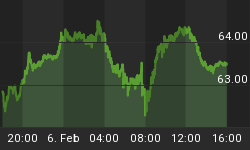John Mauldin wrote a piece last week about Brown-Vitter, a piece of legislation making its way through Congress that has a "simple" approach to getting the government out of the bank-rescue business: for big banks (basically defined in the legislation as banks who use derivatives to structure customer deals), a massive capital buffer is demanded, which would effectively take big US banks out of the derivative business and greatly increase costs and decrease variety of derivative and other solutions (many bonds issued by corporate entities are coupled with a swap to the dealer, which would now be subject to a massive capital charge).
The appeal of the legislation is its simplicity. It simply destroys the business model of the largest banks.
Moreover, it doesn't solve the "too big to fail" problem. It merely changes the hurdle of how much bad stuff needs to happen, in order to cause a bank to fail in the first place and to require saving. It wouldn't cause the government to exit the position of writing puts on banks: it would merely move the strike prices of those puts.
I will say that in my interactions with Wall Street banks, I have not run across anyone who is concerned, at least not yet, that Brown-Vitter will actually become law. It is simply too blunt of an approach - akin to burning a town down in order to keep it from being flooded.
The cynic in me says that all of this legislation is designed mainly to produce big contributions from banks to the reelection campaigns of public officials. There is a much simpler way to get the government out of the too-big-to-fail business, which furthermore does not involve causing massive side effects in the derivatives and other markets. Congress could simply pass a rule that prohibits the government (including the Fed) from bailing out a private enterprise. Problem solved, subsidy ended.
The Fed already has the power to close down and wind down insolvent banks. Of all of the Fed's powers, this is the one that has been used most successfully over the years. It isn't the failure of a bank that is the problem, but the chaotic failure of a bank that is the problem. Task the Fed with reducing the chaos inherent in large bank failures, and let the chips otherwise fall where they may.















